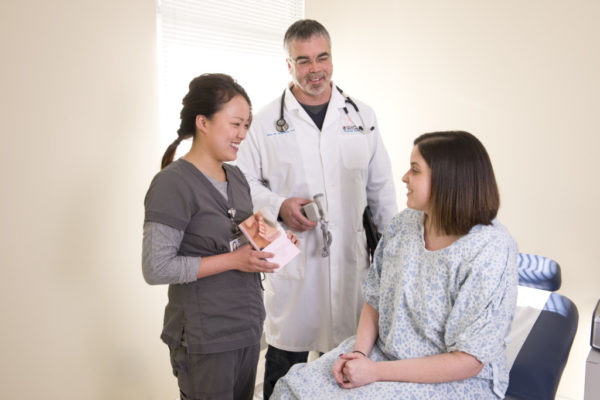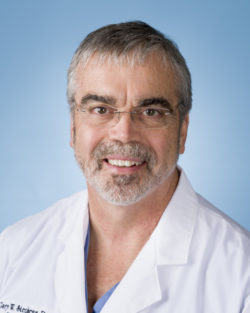Did you know approximately seven to eight percent of pregnancies are considered high-risk? There are many reasons a pregnancy could be high-risk and require care by a perinatologist. That’s why it’s so important for you to talk with your obstetrician when you’re pregnant or planning to become pregnant.

Gary Stephens, DO, of Fort Sanders Perinatal Center is one of the few high-risk doctors in Knoxville. He explains why a pregnancy may need extra care and why there’s no safer place for your baby’s beginning than with an expert perinatal team by your side.
“High-risk is a term we often use to define a pregnancy that needs special attention. It sounds scary, but it’s important to remember that being high-risk doesn’t always mean you or your baby will have problems,” says Dr. Stephens.
 You may never experience any trouble during your pregnancy, but certain risk factors still require the supervision of a high-risk specialist so that complications can be prevented. You may benefit from high-risk care if you’ve experienced any of the following:
You may never experience any trouble during your pregnancy, but certain risk factors still require the supervision of a high-risk specialist so that complications can be prevented. You may benefit from high-risk care if you’ve experienced any of the following:
- History of pregnancy complications or preexisting medical problems
High-risk perinatal care is often needed if you’ve experienced complications or medical problems during a prior pregnancy, such as gestational diabetes, hypertension, heart or kidney disease, preterm labor, or recurrent pregnancy loss. - History of birth defects
Birth defects affect one in every 33 babies born in the United States each year. Common birth defects can be attributed to inheritable conditions, genetic abnormalities, structural defects, or defects due to certain maternal infections or environmental exposures.
If you or your family have a history of birth defects, a high-risk pregnancy doctor will collaborate with a genetic counselor to check your risk for having a baby with possible health problems and create a personalized pregnancy plan for counseling, testing and treatments.
- Women 35 years or older
If you are 35 years or older and are pregnant or planning to become pregnant, care by a perinatologist is especially important as your risk for complications increases. - Women with multiples
Multiple pregnancies are always considered high-risk and require close monitoring for complications like gestational diabetes, preeclampsia, premature labor and birth, birth defects, or miscarriage.
“Pregnancy comes with enough questions, so your high-risk perinatal team can help you make the best possible decisions unique to your situation from conception through delivery,” Dr. Stephens says.
Whether you’ve experienced pregnancy complications in the past or one of the risk factors listed above, or are just concerned about your pregnancy or becoming pregnant, you can always speak with a perinatologist to determine if you need extra care. Remember, high-risk doesn’t mean there will be complications, but an expert team by your side can help you navigate the beautiful journey of pregnancy.
Complete, high-risk pregnancy care within one practice
For the last 20 years, Fort Sanders Perinatal Center has delivered over 20,000 high-risk babies at Fort Sanders Regional Medical Center. Our Center for High-Risk Pregnancies is led by maternal-fetal medicine specialists, Perry Roussis, MD, FACOG and Gary Stephens, DO, FACOOG, along with our team of nurse practitioners, midwives, phone nurses, genetic counselors, diabetes counselors, care coordinators, and sonographers.



















